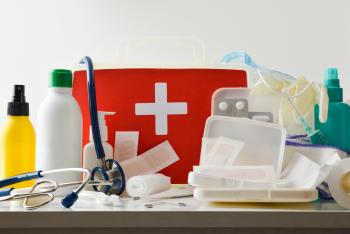Preventive health practices like regular exercise, balanced nutrition, routine screenings and stress...
Read More

In the summer months, Inspira emergency rooms all across South Jersey see an uptick in patients with symptoms of heat stroke and heat exhaustion. Knowing the difference between these two conditions can be the difference between life and death.
“While heat stroke and heat exhaustion share a lot of the same symptoms, they affect the body in different ways,” said Kara Telesmanick, M.D. Inspira Urgent Care physician . “The biggest difference, quite simply, is that heat stroke can be fatal if untreated.”
Early warning signs of heat exhaustion include nausea, fatigue, dizziness and muscle-cramping. Recognizing these warning signs will allow you to act on them as soon as possible.
“When you first suspect that you or someone around you might be having heat exhaustion, you need to take action,” said Dr. Telesmanick. “It’s imperative that you cool the body and lower the temperature as soon as you can.”
Some of the most effective ways to cool your body while also lowering your temperature are:
While it isn’t as important to get medical treatment immediately as it is with heat stroke, you should still visit your doctor or an urgent care center to be examined.
When left untreated, heat exhaustion can easily turn into heat stroke, which is considered to be the most severe heat-related illness. If not treated immediately in an emergency setting, heat stroke can be fatal.
To identify heat stroke, be on the lookout for an altered mental state, rapid breathing and flushed skin, in addition to the symptoms that accompany the initial heat exhaustion. Someone experiencing heat stroke may also stop sweating, which can be deceiving in recognizing the condition.
When your body temperature rises to 104 degrees Fahrenheit or higher, you’re considered to be experiencing heat stroke. At this very dangerous elevated temperature, the body needs to be cooled down immediately to avoid experiencing fatal organ damage. On the way to receiving emergency treatment, the affected person should drink cold water and apply cool compresses that help to cool the body down gradually.
“When your body reaches this high temperature, you can begin to have failure of different organs,” said Dr. Telesmanick. “Your brain, kidneys and heart are particularly susceptible to being irreversibly damaged if you go too long without treatment.”
As with most illnesses, the best medicine for a heat-related illness is prevention. By being cautious of how much time you spend in the sun, along with drinking plenty of fluids and staying in shaded areas, you can make yourself much more likely to be safe from falling ill.
Inspira offers walk-in services with convenient hours at Urgent Care Centers throughout South Jersey. Learn more about Inspira's Urgent Care Centers.
Inspira Health is a high reliability organization (HRO), which means safety is the top priority for patients and staff. To make an appointment, call 1-800-INSPIRA.

Preventive health practices like regular exercise, balanced nutrition, routine screenings and stress...
Read More
Knowing basic first aid can significantly improve your ability to respond to emergencies, from...
Read More
Football game days are a time for fun and celebration, but they don’t have to derail your health...
Read More
The material set forth in this site in no way seeks to diagnose or treat illness or to serve as a substitute for professional medical care. Please speak with your health care provider if you have a health concern or if you are considering adopting any exercise program or dietary guidelines. For permission to reprint any portion of this website or to be removed from a notification list, please contact us at (856) 537-6772